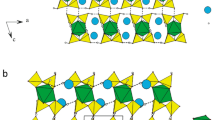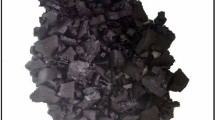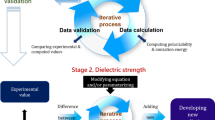Abstract
CHANGES in dielectric constant, the measurement of which is quite non-destructive, have been employed for the detection of gas chromatographic bands while still in the adsorbed state1. The method involved the measurement of the change in capacity of a condenser the dielectric of which was either a portion of the column, or a finely divided carbon packing, on which the organic vapour was adsorbed. The technique used, though sensitive, involved the measurement of small changes in radio-frequency employing apparatus of some complexity.
This is a preview of subscription content, access via your institution
Access options
Subscribe to this journal
Receive 51 print issues and online access
$199.00 per year
only $3.90 per issue
Buy this article
- Purchase on SpringerLink
- Instant access to full article PDF
Prices may be subject to local taxes which are calculated during checkout
Similar content being viewed by others

References
Griffith, James and Phillips, Analyst, 77, 897 (1952).
Hobday and Alexander, Electronic Engineering, 24, 134 (1952).
Sargrove, Brit. Pat. No. 558,036 (1942).
Author information
Authors and Affiliations
Rights and permissions
About this article
Cite this article
TURNER, D. A Robust but Sensitive Detector for Gas-Liquid Chromatography. Nature 181, 1265–1266 (1958). https://doi.org/10.1038/1811265a0
Issue date:
DOI: https://doi.org/10.1038/1811265a0


